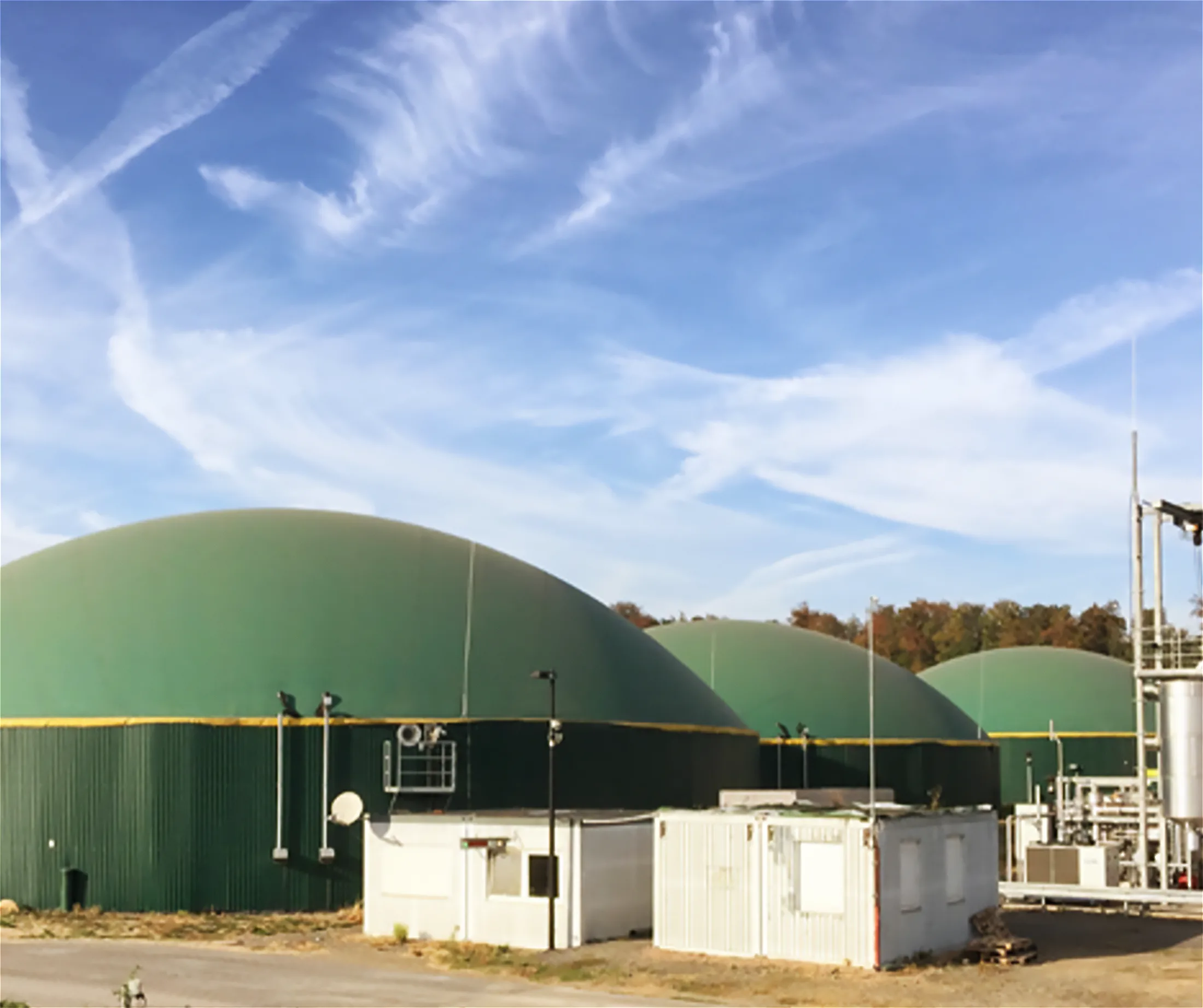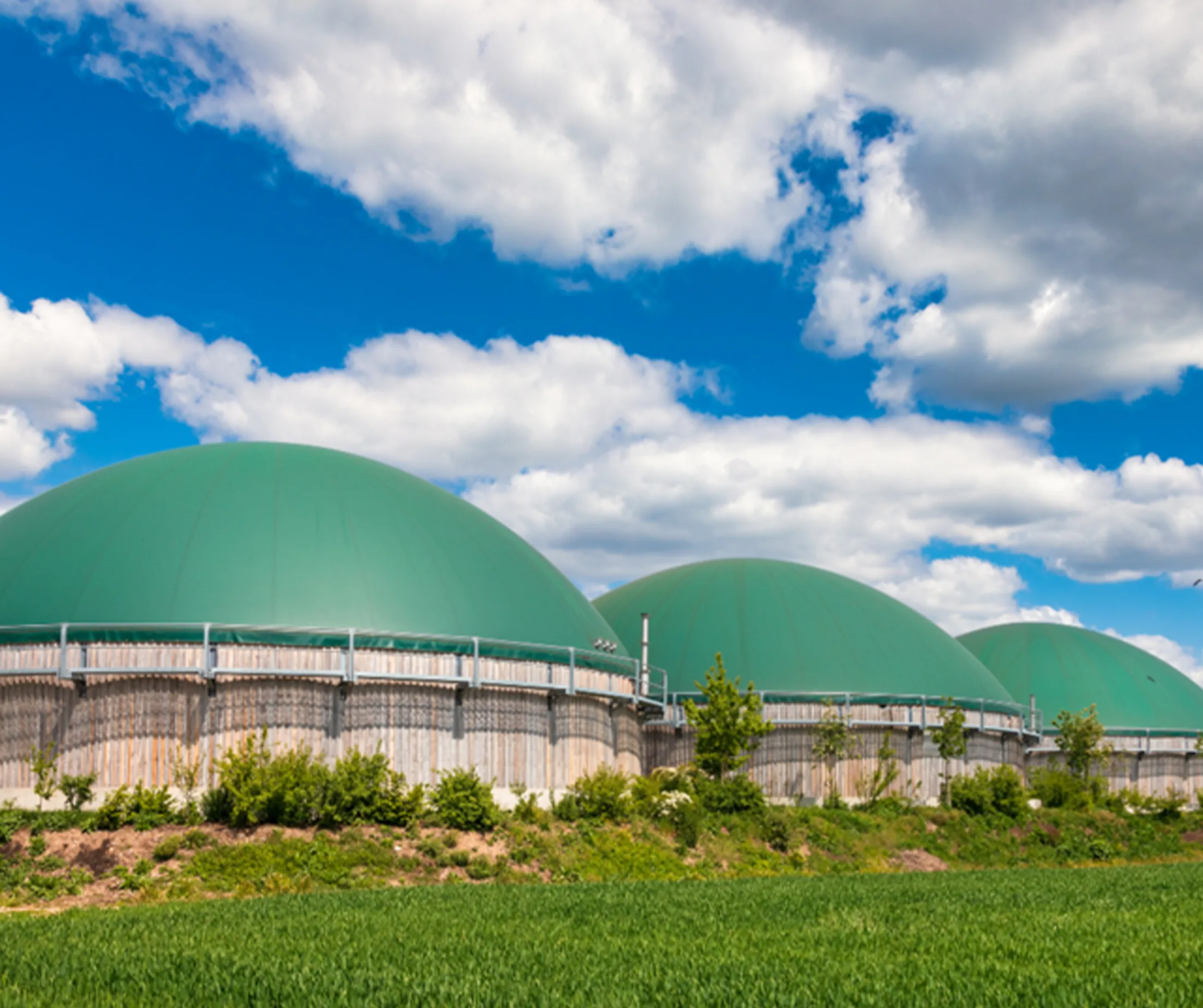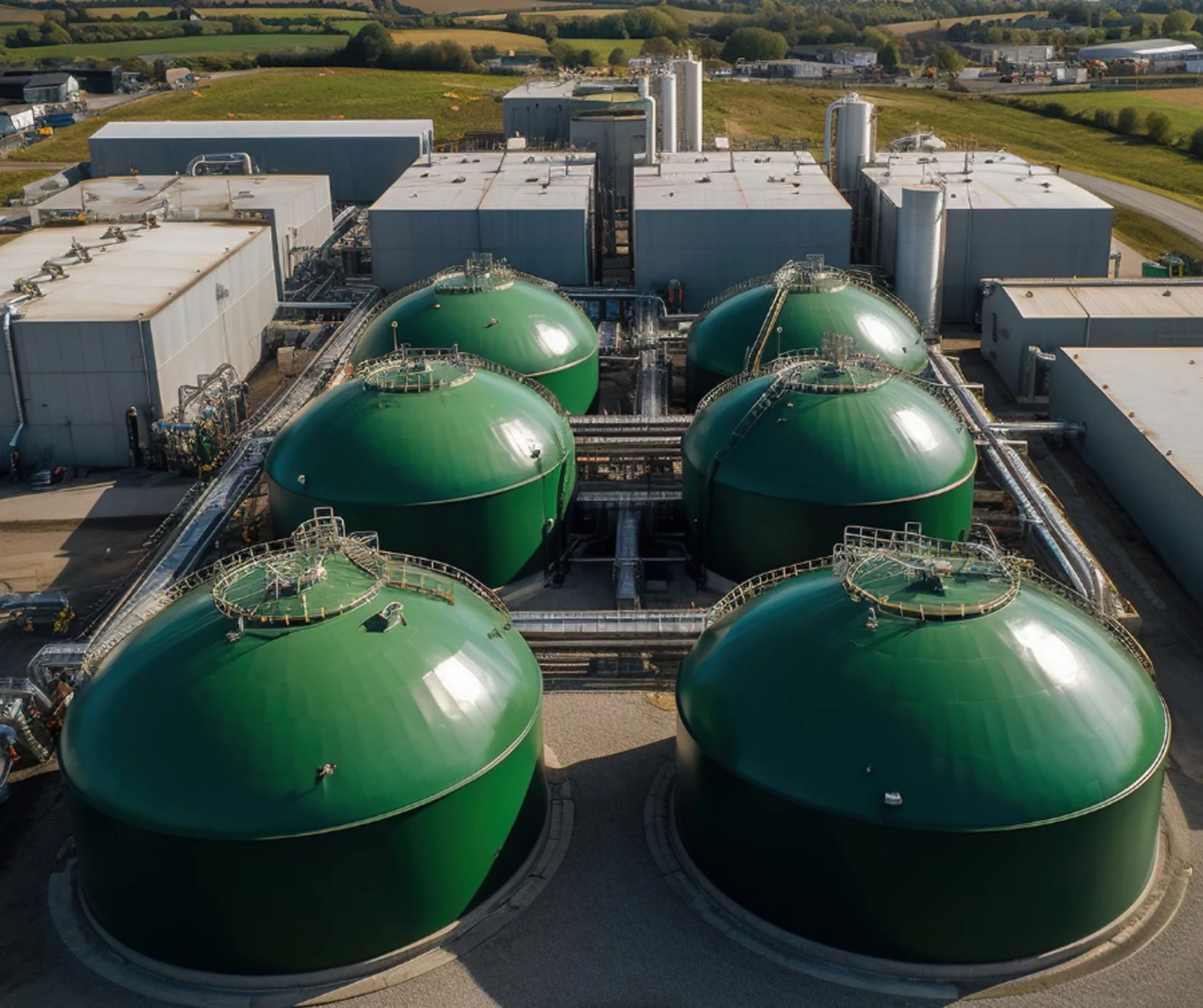Anaerobic Digestion
At EEMU, we specialise in providing advanced anaerobic digestion solutions, helping businesses, farms, and local communities turn organic waste into renewable energy. Whether you aim to reduce waste or generate clean energy, anaerobic digestion is an effective, environmentally friendly solution that benefits both your operations and the planet. Our systems also enable seamless integration with the gas grid, allowing you to supply clean, renewable biomethane directly for widespread use, contributing to a greener energy network.

What Is Anaerobic Digestion?
Anaerobic digestion is a biological process where microorganisms break down organic materials—such as food waste, agricultural residues, and sewage sludge—in an oxygen-free environment. This occurs inside a sealed container called a digester. The result is the production of biomethane, a renewable energy source, and digestate, a nutrient-rich byproduct used as a natural fertiliser.
The process creates biogas, which is primarily methane and carbon dioxide. This biogas is upgraded by removing carbon dioxide and other impurities to produce biomethane. This clean, renewable gas can be injected into the natural gas grid, used as vehicle fuel, or converted into electricity and heat, making it a versatile and sustainable alternative to fossil fuels.
How Does Anaerobic Digestion Work?
The anaerobic digestion process is divided into four stages:
- Hydrolysis: Large organic molecules are broken down into smaller ones like sugars and amino acids.
- Acidogenesis: These smaller molecules are converted into volatile fatty acids.
- Acetogenesis: Further breakdown produces acetic acid, carbon dioxide, and hydrogen.
- Methanogenesis: Methane-producing bacteria convert acetic acid into biomethane.
The remaining material, called digestate, is a nutrient-rich byproduct used as organic fertiliser. It contains essential nutrients like nitrogen and phosphorus, improving soil health and supporting sustainable farming practices.


Key Benefits of Anaerobic Digestion
- Renewable Energy Generation: Biomethane can be used for electricity, heating, and as clean vehicle fuel, reducing dependence on fossil fuels.
- Sustainable Waste Management: Anaerobic digestion efficiently diverts waste from landfills, lowering your carbon footprint.
- Natural Fertiliser: The digestate is rich in nutrients, reducing the need for chemical fertilisers and promoting sustainable agriculture.
- Reduced Environmental Impact: This process helps mitigate climate change by lowering greenhouse gas emissions and supporting a circular economy.
Why Choose EEMU for Your Anaerobic Digestion Project?
At EEMU, we offer comprehensive services for designing, installing, and managing anaerobic digestion systems. Whether you’re a farm, food manufacturer, waste management company, or municipality, we tailor our services to meet your specific needs.
Our services include:
– Construction, design, and project management: From feasibility studies to ongoing support.
– Gas-to-grid pipeline services: Identifying the best connection points for biomethane export to the national gas grid.
– Grid application support: Assisting with grid applications to confirm export capacity.
Our expert team ensures that your anaerobic digestion system is designed for optimal performance, delivering both environmental and economic benefits.
If you’re ready to explore how anaerobic digestion can benefit your business, contact us today to learn more or request a quote to start your project.

GET A QUOTE
OR REQUEST A CALL BACK
Whether your project is at an advanced stage and you are simply looking for a quote or if you would like our input to design a system best suited to your needs, you are in safe hands with EEMU.
Our team will always listen to understand your business and objectives before using our decades of experience to provide you with a deliverable proposal to your budget and timescales.
Why not reach out to put us to the test.
If you have any enquiries, please get in touch and one of our team will be happy to help